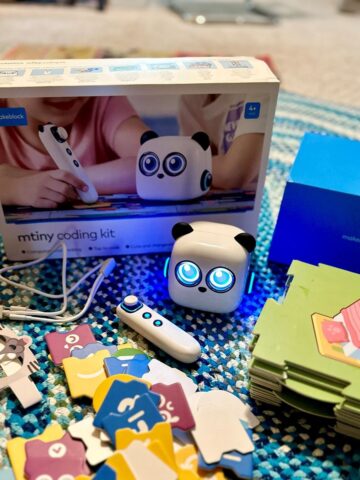The content on this website is for informational purposes only and is not meant to replace professional or medical advice. See our full disclaimer.
When others are in denial - what to do if you have ADHD but your friends or parents won't believe you.
It is difficult enough being different from most people around you. It is even harder when the differences are invisible, and those around you refuse to believe or accept that they even exist.
Yet this experience is all too common among the ADHD community. Many people learn that they are ADHD either through a formal or self-diagnosis but struggle to have their differences and support needs recognised.
This can be particularly the case for ADHD women. As much of the early research into neurodivergent conditions was based on adolescent boys, many of the traits most strongly identified with ADHD and autism are those shown by young men. However, while ADHD can and does impact the lives of women differently, it is just as real.
It can be a soul-destroying experience. Effectively, those who deny your diagnosis are attempting to gaslight you by trying to persuade you that something that you know to be a fact is not true, and this in turn may cause you to start doubting yourself and damage your mental health. What can you do when faced with this situation?
Hold tight to the truth – and recognize transference
First, know this: ADHD is real, it has real impacts on your life, and it is not something that you are making up. A well-researched and considered self-diagnosis is just as valid as a formal assessment, particularly with access to diagnoses in the UK so difficult at present.
Other people telling you that you are not ADHD is no more valid than them telling you that you have blond hair when it is clearly brown, or that you have three legs. People can and do say and think whatever they like, but it does not change the facts.
When others deny your diagnosis, think too about why they are suggesting that you are not ADHD. Perhaps it is because they would prefer not to have to make the adjustments that you are entitled to.
Or maybe they assume that you are using it as an excuse to avoid work or other demands. This last case is particularly interesting, as it likely says far more about how their minds work than about you – if their first instinct when someone shares a condition that affects them is that it is a work avoidance technique, perhaps it is because that is what they would do given the opportunity.
Transference of their ulterior motives to you is not your problem but can be very revealing once you learn to spot it!
Pity their ignorance
Denial of ADHD and neurodivergence is ignorance, plain and simple. There is plenty of information out there, and all of us have access to it. Even if someone knows little or nothing about ADHD when you first mention it, there are options for how they respond.
If they choose to deny your diagnosis, they are simply trying to make the situation into what is easiest for them, rather than making a statement about you that has any validity whatsoever.
A much better response is to ask for more information or what you want them to know about how it impacts your life, and then follow this up by doing some research and reading of their own.
The correct response to wilful ignorance is pity. We are all ignorant of particular things at times and have to educate ourselves. Everyone understands that.
What is not acceptable is deliberately maintaining a state of ignorance about something that impacts you, or, even worse, making judgments and pronouncements based only on that ignorance. That is the way to prejudice, inequality, and injustice.
Let time work its magic
How often is your first reaction to unexpected news the same view you hold on that point a few days or weeks later? Deep in our brains, we all still have a strong fight or fight reflex designed to keep us alive, and sometimes when you tell someone that you are ADHD, this may initially kick in.
Combine this with an initial lack of knowledge and understanding, and the first reactions you may get from others are often not the supportive, positive response you were hoping for.
Fortunately, we are not bound by our first reactions. Time really can and does change us all. Many people that you share your diagnosis with may simply need some time to get their heads around it, ask you questions and increase their knowledge and understanding.
There was a time when you knew nothing about ADHD as well – and you are an ADHD person. Encourage those around you to learn more from you and other sources to help them gain a greater understanding.
Educate where you can
Building on letting time do its thing, you can take proactive steps to educate others. The key here is knowing the person you are trying to educate. Some friends and family may welcome you sharing your diagnosis and immediately recommending websites, videos and podcasts for them to engage with to understand more.
Others may need a more personal approach, or to be left to find information independently. But decent people will want to know more, one way or another, and being prepared to point them in the right direction can be helpful.
Find your tribe
Finally, even if those around you continue to deny your diagnosis, there is a wonderful ADHD community around the world that will not. We are no longer confined to only meeting the people in our immediate communities – we can connect online with other ADHD people whenever we want to.
Whatever you are going through, you can quickly find others that have faced or are facing the same. Somehow knowing that you are not alone in this way can be hugely comforting, and help you hold on to the truth in the face of opposition from those around you.
You are perfect as you are, and you deserve to be valued for who you are, not who others would rather that you be. If they cannot accept you on those terms, it is their loss, not yours.





We'd love to hear from you